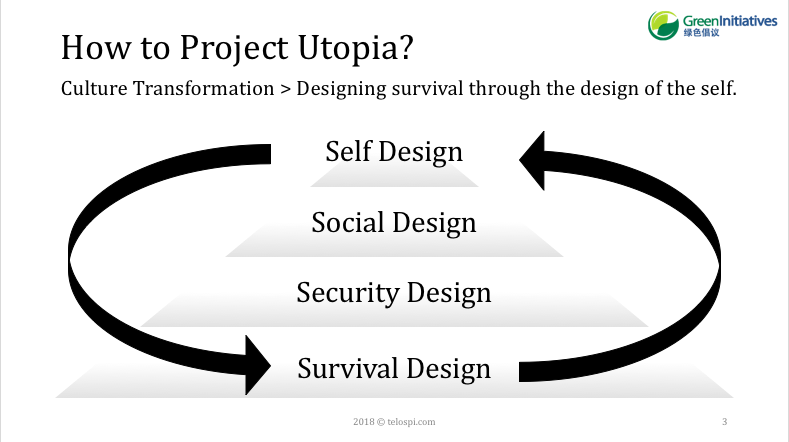To be sure, the fundamental task of management remains the same: to make people capable of joint performance through common goals, common values, the right structures, and the training and development they need to perform and to respond to change.
Management guru and philosopher Peter F. Drucker defined in the industrial age of the 20th century the essence of management and taught us that management as a discipline does not change. But management is the competence of making people with different skills and knowledge capable of jointly responding to change by finding and applying
1.Common goals
2.Common values
3.The right structures
4.The right training
How do we respond to climate change?
Without doubt we need to respond to climate change, because the iceberg is melting as Harvard Business School professor John Kotter once wrote. Climate scientist Alice Bows Larkin explained the situation of our species and the global ecosystem in plain single digit numbers:
Current emission output puts us on a plus 4˚ Celsius trajectory until 2050; because emissions build up over time and changing global warming is like steering a large ocean vessel. We have to start much in advance and we need a huge area to make a turn around. If we want to avoid the plus 4˚ Celsius trajectory and settle for a plus 2˚ trajectory we need to act now and we need to change our behavior at large scale at all levels of social life, ourselves, corporations and governments.
What is management in the Anthropocene?
The Anthropocene is defined by human impact on the planet. It is therefore each one of us who can contribute to avoid climate change. But as with all challenges of scale it takes management to make people effective and productive. Management in the Anthropocene must therefore be summarized as
making people with different skills and knowledge capable of responding to climate change by
- Setting our own and our children’s survival, i.e. our species’ survival as our common goal.
- Understanding planet Earth as a global ecosystem, our collective home, without which we can not survive.
- Organizing ourselves in structures which serve this common goal best; in particular, the structures of our economic and educational systems.
- Training all human beings with the skills and competencies which are most conducive to reach our goal.
Who will be the Chief Executive Officer?
We need somebody who connects deeply with both people and the planet. We need somebody with an extraordinary sense of self-control and an established routine of management by objectives. Who dares to step forward and who will receive a popular endorsement for this position?
The paradox in this age is that we all need to be CEO’s of our own individual economy, our own inner ecology, but still need a CEO to move us forward as a whole.
More on the Anthropocene on NPR.

